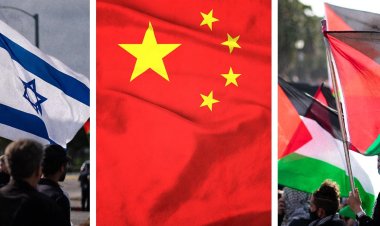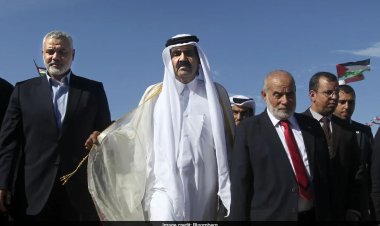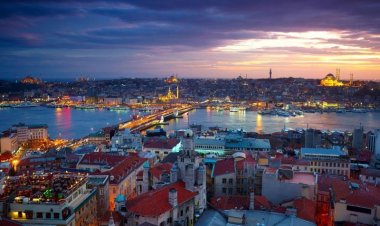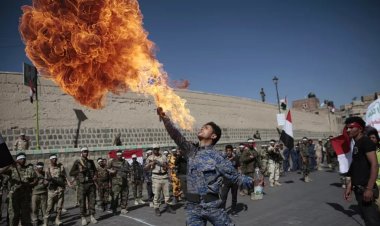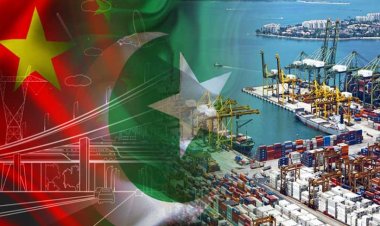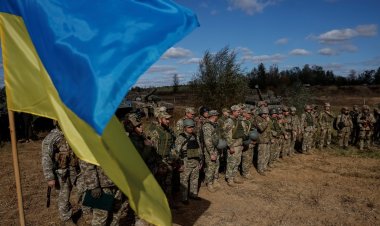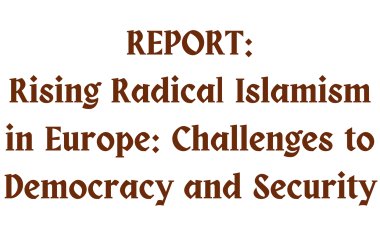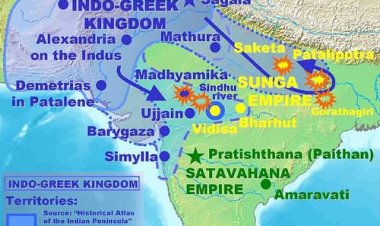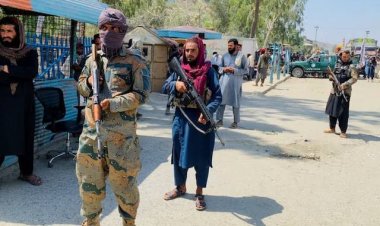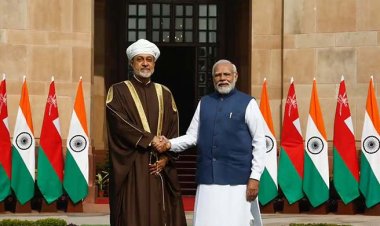Israeli Scholars Discuss the Role Played by Religious Authorities in the Middle East
At a time when the nexus between politics and religion in the Middle East is garnering global attention, Usanas Foundation organized a timely webinar exploring the dynamic role played by religious authorities within their communities and their engagement with the broader social and political forces in the region.

Usanas Editorial Team
At a time when the nexus between politics and religion in the Middle East is garnering global attention, Usanas Foundation organized a timely webinar exploring the dynamic role played by religious authorities within their communities and their engagement with the broader social and political forces in the region. The panelists included prominent Israeli scholars namely, Prof. Meir Litvak, Professor at the Department of Middle Eastern History and a Senior Research Associate at the Alliance Centre for Iranian Studies at Tel Aviv University, Dr. Ronen Zeidel, Iraq analyst in the Moshe Dayan Centre, Tel Aviv University, Dr. Daniel Roth, lecturer at Bar-Ilan University’s Conflict Management, Resolution and Negotiation Graduate Program and Dr. Michael Barak, lecturer at the Lauder School of Government Diplomacy and Strategy at The Interdisciplinary Centre (IDC) Herzliya.
Prof. Litvak addressed the complex questions surrounding the debate over Velayat-e Faqih in Contemporary Shi’ism. The term Vilayat-e Faqih means “the mandate of the jurist,” and recognizes the Faqih/jurist as the guardian of the Ummah. Situating the contemporary debate on the role of religion against the historical backdrop of the emergence of clerical authority, he explains how the contentious questions surrounding the political authority of the Imam were left “undiscussed, by intention.” “The issue became more pertinent in the 20th century when the rift between the clergy and Iranian monarchy grew immensely following the westernizing and modernizing policy of the Pahlavi Dynasty,” he said. He explained how Ruhollah Khomeini—an Iranian Shi'a cleric who led the Iranian Revolution—developed a “new doctrine” which “decreed that no other form of government is legitimate, the only clerical rule is legitimate.” “One crucial issue in Shi’a Islam is the issue of justice…. but the dominant approach in Iran came from an idea that justice requires the ‘vilayat’ or the authority of the jurist, therefore justice is below the ruler, to the Supreme Cleric, which means that the Supreme Cleric stands above justice, above any other value in Islam.” The practical implementation of this idea was the change in the Iran constitution of 1989 before Khomeini’s death that lowered the scholarly credentials for the Supreme Leader and elevated the political qualifications of the Supreme Leader.
Dr. Zeidel, who has been studying Iraq for nearly 30 years, spoke about Shi’i political Islam in Iraq—comparing Ali al-Sistani, leading spiritual leader of Iraqi Shia Muslim, and Muqtada al-Sadr, an Iraqi Shi’i cleric and politician. “Sistani is not Iraqi, he was born in Iraq,” he says. He aims to provide “moral guidance to Iraq rather than political leadership. He is a spiritual and moral leader.” Sistani is a champion of the advocacy of Shi’ism all over the world from Israel to India. He rejects Iranian hegemony and is opposed to militia outside the law and rejects those who are part of the militia. In contrast, Muqtada “controls massive influence and an armed militia in Iraq.” Compared to Sistani, he has a greater public presence and active social media presence. Dr. Ziedel explains how both are very power figured and “if you are a religious Shi’i who needs sectarian identity in politics al-Saddar is your answer but if you are a religious Shi’i who needs religious advice you subscribe to Sistani.”
Dr. Daniel Roth, director of The Religious Peace Initiative at Mosaica, in his presentation on the Sheikh Abdallah Nimer Darwish, highlighted his role as a religious mediator. He presented his biographic sketch tracing his trajectory from founding ‘Usrat al-Jihad’ a jihadist terrorist organization in 1978 to founding the Adam Center for Dialogue of Civilizations and the Religious Peace Initiative together with Rabbi Michael Melchior (then Deputy Foreign Minister) in 2005. During his presentation, he especially highlighted the role played by him in mediating between the many Palestinian branches and between Palestine and Israel. “Now every Israeli knows who he (Sheikh Abdullah) is because they know one of his main students, Mansour Abbas, leader of the Ra’am party…and Mansoor Abbas who has noted in numerous instances in his work as a religious mediator…is taken from Sheikh Abdullah’s teaching,” he said while reflecting on the religious leader’s legacy.
Dr. Michael Barak, the lecturer at IDC Herzliya, spoke on Al Azhar—a religious establishment in Egypt—and its role in encountering extremist ideologies, particularly of the Muslim Brotherhood. “Al Azhar is also trying to play a role in preventing radicalization among Muslim communities in not only Egypt but also Africa, West and other places…by cultivating a moderate version of Islam, tolerance, and coexistence, by counter-narratives against radical Islam ideologies,” he highlighted. He explained how the Egyptian regime and Al-Azhar form a “strategic alliance” to counter radical interpretation of Islam as they have a common enemy, although he does identify a rift emerging between them. “Although there is a strategic alliance between the Egyptian regime, Al Azhar is trying to keep its independence,” he said. He concluded by saying that although Al Azhar is playing a major role as a religious authority in fighting the radical discourse of ISIS and Al Qaeda, it still has to do more.
Disclaimer: All opinions expressed in the Webinar belong to the speaker and are not reflective of Usanas Foundation.

 Debdoot Basu Ray
Debdoot Basu Ray 